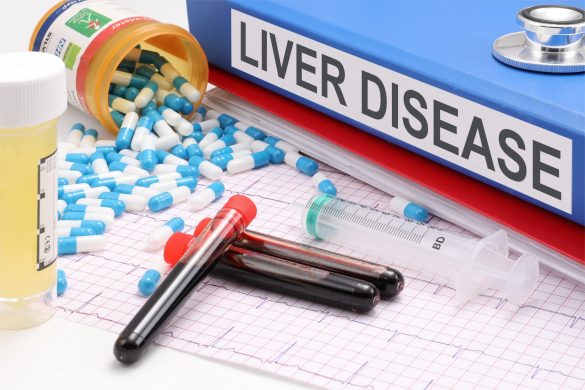Our furry friends are more than just pets; they are family members who bring joy and companionship to our lives. As responsible pet owners, it is our duty to ensure that they are healthy and happy. However, sometimes it can be challenging to decipher the signs of their health, especially when it comes to their liver. The liver is a vital organ that plays a crucial role in your pet’s overall health. In this guide, we will decode your pet’s liver health, providing you with the knowledge and tools to keep your furry friend healthy and happy. So, let’s dive in and learn more about your pet’s liver health!
1. “Unlocking the Mystery: Understanding Your Pet’s Liver Function”
The liver is a vital organ in your pet’s body that performs a variety of functions. It is responsible for filtering toxins from the blood, producing bile for digestion, and storing essential nutrients. Understanding your pet’s liver function is crucial for maintaining their overall health and well-being.
One way to monitor your pet’s liver function is through blood tests. These tests can detect any abnormalities in liver enzyme levels, which can indicate liver disease or damage. Additionally, keeping your pet’s diet balanced and avoiding certain medications or toxins can help prevent liver problems. If you suspect your pet may have liver issues, it’s important to consult with your veterinarian for proper diagnosis and treatment. By understanding your pet’s liver function, you can help ensure they live a long and healthy life.
2. “The Ultimate Guide to Decoding Your Pet’s Liver Health”
The liver is one of the most important organs in your pet’s body. It plays a crucial role in detoxifying the blood, producing bile, and metabolizing nutrients. As a pet owner, it’s essential to keep an eye on your pet’s liver health to ensure they live a happy and healthy life. Here are some tips to help you decode your pet’s liver health:
- Watch for signs of liver disease: Some common symptoms of liver disease in pets include vomiting, diarrhea, loss of appetite, weight loss, and jaundice. If you notice any of these symptoms, it’s crucial to take your pet to the vet immediately.
- Feed your pet a healthy diet: A healthy diet is essential for your pet’s liver health. Make sure your pet’s food contains high-quality protein, vitamins, and minerals. Avoid feeding your pet fatty or processed foods, which can put a strain on their liver.
- Limit your pet’s exposure to toxins: Toxins can damage your pet’s liver. Keep your pet away from household chemicals, pesticides, and other harmful substances. If you’re unsure if something is safe for your pet, consult with your vet.
In addition to these tips, it’s essential to schedule regular check-ups with your vet to monitor your pet’s liver health. Your vet can perform blood tests and other diagnostic tests to ensure your pet’s liver is functioning correctly. By taking these steps, you can help ensure your pet’s liver stays healthy and they live a long and happy life.
3. “Cracking the Code: Tips for Maintaining Your Pet’s Liver Health
Maintaining your pet’s liver health is crucial for their overall well-being. Here are some tips to help you crack the code and keep your furry friend’s liver in tip-top shape:
– Feed a balanced diet: A balanced diet is essential for liver health. Make sure your pet’s food contains all the necessary nutrients, including protein, vitamins, and minerals. Avoid feeding your pet table scraps or human food, as these can be high in fat and salt, which can be harmful to the liver.
– Provide fresh water: Water is essential for liver health, as it helps flush out toxins from the body. Make sure your pet has access to fresh, clean water at all times. Consider adding a water fountain to encourage your pet to drink more water.
– Exercise regularly: Regular exercise is essential for liver health, as it helps improve circulation and promotes the elimination of toxins from the body. Make sure your pet gets plenty of exercise, whether it’s through walks, playtime, or other activities.
– Avoid toxins: Toxins can be harmful to the liver, so it’s important to avoid exposing your pet to them. This includes household cleaners, pesticides, and other chemicals. If you must use these products, make sure your pet is not in the area and that the products are stored safely.
– Monitor your pet’s weight: Obesity can be harmful to the liver, so it’s important to monitor your pet’s weight and make sure they maintain a healthy weight. Talk to your veterinarian about the best diet and exercise plan for your pet.
By following these tips, you can help maintain your pet’s liver health and ensure they live a long and healthy life. Remember to always consult with your veterinarian if you have any concerns about your pet’s health. In conclusion, understanding your pet’s liver health is crucial to their overall well-being. By decoding the signs and symptoms, you can take proactive steps to ensure their liver stays healthy and functioning properly. Remember to always consult with your veterinarian if you have any concerns or questions about your pet’s liver health. With the right care and attention, you can help your furry friend live a long and healthy life.

